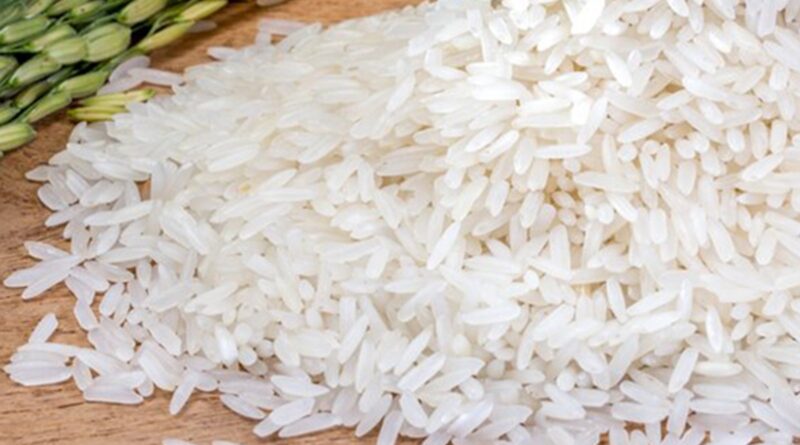India-Pakistan battle for basmati rice turns acrimonious
By Neeta Lal
India and Pakistan rarely struggle to find things to fight about, and the true ownership of basmati rice is no exception.
But what’s been a long simmering battle between the nuclear-armed neighbors is now boiling over as India’s top agricultural science body accuses Pakistan of “illegally” growing copyrighted strains of the staple in South Asian cooking — and a major export for both countries.
The accusation was India’s latest salvo in an increasingly acrimonious fight over its claims to the fragrant rice variety.
India’s accusations of seed piracy and copyright infringement were sparked by online videos purportedly showing Pakistani farmers cultivating a prized strain, with the Indian Agricultural Research Institute (IARI) saying it made the claims “to protect the interests of our farmers and exporters”.
“Our scientists work hard to develop and improve basmati rice varieties to augment yield, quality, and resistance to pests and diseases which fetch us high prices in the international market,” an IARI spokesperson said.
The Institute claims Pakistan’s muscling into the market — at lower prices — could hurt India’s reputation as a supplier of premium basmati in international markets.
India already has a case at the European Commission to exclusive rights to the name basmati. But the latest flare-up comes at a sensitive time for Pakistan’s neighbor as its own exports drop and it loses even more ground to its rice rival.
India and Pakistan have been competing fiercely for global demand for the long-grained strain — known as the ‘Scented Pearl’ for its unique aroma — which fetches top dollar.
Countries including Iran, Iraq, Yemen, Saudi Arabia, the United Arab Emirates and the United States are the main buyers, where basmati finds its way into everything from pilafs to desserts and other sweets.
Top exporter India commands a 65% share of the world market while Pakistan takes up the rest. Basmati is a major revenue driver for India with record earnings of $5.4 billion in 2023, up nearly 21% from the previous year due to higher prices and bumper production.
However, exports have been faltering since January, and may drop more as buyers delay purchases due to a surge in freight costs linked to shipping bottlenecks in the Red Sea.
Low rainfall so far this year could also impact India’s rice output, the agriculture ministry warned in February, while Delhi’s imposition of rice export restrictions in 2023 have also pushed down the grain’s shipments, traders said.
While India clocked 4.9 million metric tons of basmati rice exports in 2023, the yield this year is expected to be lower. By contrast, Pakistan’s rice exports could surge to 5.0 million metric tons, up from the last year’s 3.7 million tons, according to reports.
These vulnerabilities have led India’s rice exporters to turn even more protective of basmati varieties.
“We’ve asked the Commerce Ministry to take strict legal action against Pakistan’s cultivators,” said Vijay Setia, former president of All India Rice Exporters’ Association.
Indian exporters were also hurt by the government imposing a higher minimum export price (MEP) of $1,200 per metric ton, up from $950, which led to a steep decline in overseas sales, he added.
“Over 80% of basmati rice exported was sold at rates lower than this MEP and Pakistan benefited greatly from this disruption,” Setia said. “Though the government did recalibrate the MEP later, many small traders are still reeling from the effect of the knee-jerk move.”
Pakistan, meanwhile, has dramatically increased its cultivable land growing for basmati rice which will likely send production soaring and take an even bigger bite out of India’s global share, according to traders.
Some are calling for Delhi to raise their concerns at the World Trade Organization to enforce intellectual property laws and prevent copyright infringement.
Pakistani traders deny any foul play.
Hamid Malik, an Islamabad-based rice commodity specialist, said Pakistan was not growing the strain at the heart of the recent flare-up.
“What we grow is Kissan Basmati, which is equivalent to [the other strain] but not the same,” he said, adding that it had been approved for sale in Europe and the United Kingdom. “It is an upgraded variety, albeit from the same parent.”
Pakistan is also contesting India’s bid at the European Commission, first lodged in 2018, for exclusive rights to use the term basmati under a Protected Geographical Indication — a term given to a product when a particular quality, reputation or other characteristics are linked to its geographical origin.
Basmati has “joint heritage” because the strain was historically cultivated across what later became two modern nations, Malik said.
“If India has a problem, it can lodge a protest at the WTO,” he added.
This article has been republished from The Nikkei Asia.

